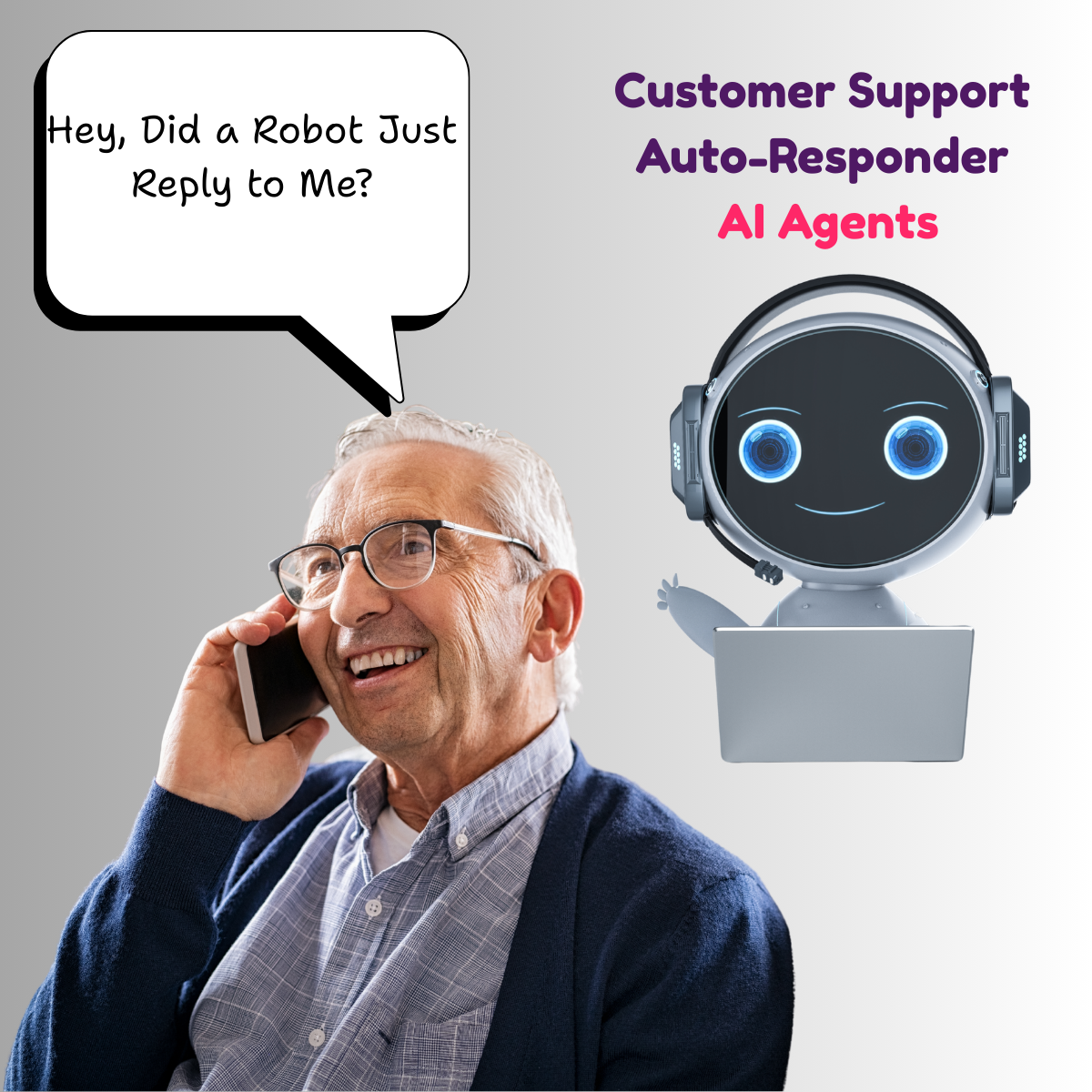Posted At: Aug 13, 2025 - 417 Views

The Rise of Customer Support Auto-Responder AI Agents: 24/7 Help at Scale
In an age where customer expectations are higher than ever, fast and accurate responses are no longer a bonus—they’re a requirement. Enter the Customer Support Auto-Responder AI Agent: an intelligent, always-on digital assistant designed to transform how businesses handle customer interactions.
🧠 What Is a Customer Support Auto-Responder AI Agent?
A Customer Support Auto-Responder AI Agentis an AI-powered system that automatically understands, processes, and responds to customer inquiries—typically through chat, email, or messaging platforms. Unlike traditional rule-based chatbots, these agents use natural language understanding (NLU), machine learning, and contextual memoryto hold realistic, helpful conversations.
It’s more than an FAQ bot—it can analyze customer sentiment, escalate to a human when needed, personalize responses based on previous interactions, and even execute basic tasks like order tracking or password resets.
⚙️ How It Works
- Input Processing
The AI agent captures the customer's message via chat, email, or a web form.
- Intent Recognition
Using NLP models, it identifies the intent behind the query (e.g., "Where is my order?").
- Entity Extraction
It extracts key data such as order ID, user name, or product info.
- Response Generation
Based on context, past interactions, and company knowledge base, it crafts a relevant response—either from a pre-trained model or via dynamic generation.
- Action Execution (Optional)
If integrated with backend systems, it can trigger actions like issuing a refund, changing a delivery address, or escalating to a human.
- Continuous Learning
With feedback loops, the AI agent improves over time, learning from past queries, resolutions, and customer satisfaction scores.
💡 Real-World Use Cases
- E-Commerce
Responding to "Where is my order?" queries, processing returns, or updating delivery status automatically.
- SaaS Platforms
Answering technical questions, resetting passwords, and guiding users through onboarding.
- Travel & Hospitality
Handling booking changes, sending boarding passes, or dealing with flight delays and cancellations in real time.
- Telecom & Utilities
Managing service outages, billing inquiries, or plan changes without needing human intervention.
🚀 Key Benefits
✅ 24/7 Availability
Your customers get instant support—even outside of business hours.
✅ Reduced Operational Costs
Handle thousands of conversations simultaneously without growing your support team.
✅ Faster Response Times
Boost customer satisfaction with near-instant replies.
✅ Higher Consistency
Deliver brand-aligned answers every time, without agent variability.
✅ Smart Escalation
Seamlessly hands off complex issues to human agents with full context, reducing frustration.
✅ Multilingual Support
Reach global customers with native-quality responses in multiple languages.
🔒 Security and Privacy Considerations
Auto-responder agents often handle sensitive information. It’s crucial they:
- Are GDPR/CCPA compliant.
- Use end-to-end encryption.
- Log and audit interactions for transparency.
- Are trained with bias-mitigation strategies.
🌐 Tools and Platforms
Popular solutions for building or integrating AI support agents include:
- Zendesk AI
- Freshdesk Freddy
- Intercom Fin
- Ada
- OpenAI-powered custom agents(via API)
These can plug into existing CRMs, help desks, or messaging platforms like Slack, WhatsApp, and Messenger.
🔮 What’s Next: The Future of AI Support Agents
The future is proactive. Soon, AI agents will:
- Anticipate problems before they happen (e.g., flag a delayed delivery before the customer asks).
- Act as omnichannel assistants, switching across chat, voice, and email seamlessly.
- Provide hyper-personalized support based on full customer histories, sentiment analysis, and behavior prediction.
And with large language models (LLMs) like GPT-4.5+ and beyond, AI agents will become increasingly indistinguishable from human reps.
AI auto-responder agents aren’t just a cost-cutting tool—they’re a competitive differentiator. Companies using them effectively deliver faster, smarter, and more scalable customer experiences. If you're not exploring AI-driven support yet, you're not just behind the curve—you’re leaving customer satisfaction (and revenue) on the table.
